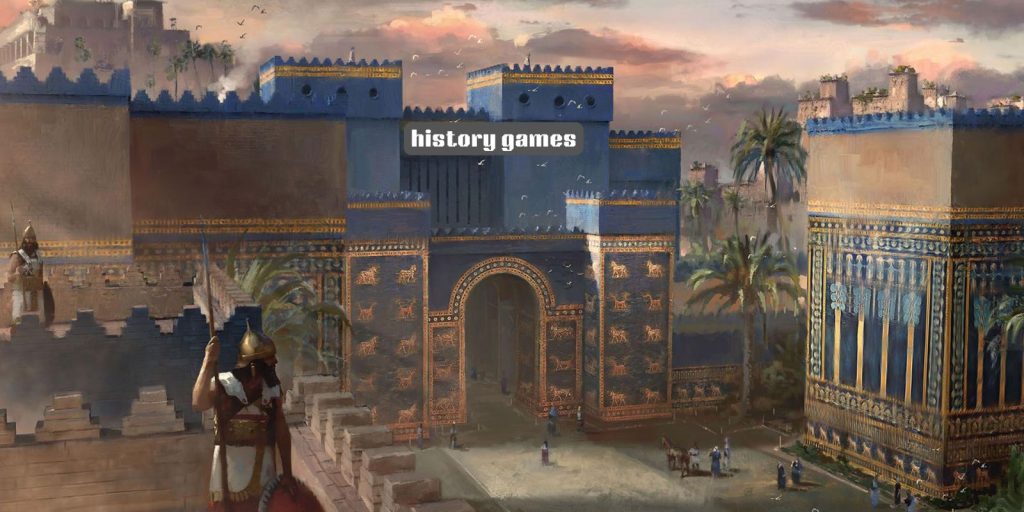Forget dry textbooks and monotonous lectures. The past is coming alive like never before, not through a time machine, but through the immersive power of history games.
This vibrant genre leverages interactive entertainment to transport players to bygone eras, letting them walk in the footsteps of pharaohs, command legions, or broker peace treaties that shaped our world.
From sprawling strategy epics to bite-sized location-based adventures, history games offer diverse gateways into understanding the human story.
Defining History Games: More Than Just a Backdrop
At their core, history games use historical settings, events, figures, or themes as the primary foundation for gameplay. This isn’t just about aesthetics; it’s about integrating the past into the mechanics, narrative, and player objectives.
Think beyond games merely set in the past – true history games strive to reflect the challenges, technologies, social structures, and pivotal moments of their chosen period.
This can range from meticulously researched simulations to more fantastical interpretations that use history as a compelling springboard.
How History Games Work: Mechanics Meet the Past
The “how” varies dramatically across the genre:
- Grand Strategy & 4X: Games like the Civilization series or Crusader Kings cast players as leaders of nations or dynasties. They engage in exploration, expansion, exploitation, and extermination (“4X”) over centuries, managing economies, diplomacy, research, and warfare based on historical, technological, and societal constraints.
- Real-Time Strategy (RTS): Titles like Age of Empires or Total War focus on tactical and strategic military command within specific historical conflicts, requiring resource management, unit composition, and battlefield maneuvering true to the era.
- Action-Adventure/RPG: Games like the Assassin’s Creed franchise blend historical settings with fictional narratives. Players explore meticulously recreated cities, interact with historical figures, and undertake missions influenced by real events, often incorporating parkour, stealth, and combat.
- Simulation & Management: This includes everything from city-builders like Caesar IV or Anno 1800 (managing resources and populations in historical contexts) to more niche sims like Kingdom Come: Deliverance, aiming for high fidelity in medieval life simulation.
- Puzzle & Narrative Adventures: Games like Valiant Hearts: The Great War or Return of the Obra Dinn use puzzle mechanics and strong storytelling to explore historical events and personal stories within them.
- History Spot Games: This emerging sub-genre leverages mobile technology and location. Think apps like Ingress (historically themed augmented reality) or dedicated history spot games where players visit real-world historical locations to unlock content, solve puzzles based on the site’s past, or engage in location-specific quests. These turn your surroundings into an interactive history lesson.
Finding and Downloading Your History Adventure
Accessing history games is easier than ever:
- PC/Mac: Digital storefronts are king. Steam boasts the largest library, featuring everything from AAA blockbusters to indie historical gems. Epic Games Store, GOG.com (specializing in DRM-free classics), and direct publisher stores (like Paradox Plaza) are also major sources.
- Consoles (PlayStation, Xbox, Nintendo Switch): Access the respective console’s digital store (PlayStation Store, Microsoft Store, Nintendo eShop). Physical discs remain an option for many titles.
- Mobile (iOS/Android): The App Store and Google Play offer a massive selection. This is the primary home for history spot games, augmented reality experiences, simpler strategy titles, narrative adventures, and ports of older PC/console games. Popular examples include Plague Inc. (historical scenarios), Reigns: Her Majesty, and dedicated apps from museums or historical sites.
- Subscription Services: Services like Xbox Game Pass, PlayStation Plus Extra/Premium, and Apple Arcade often include excellent history games in their rotating libraries, offering a cost-effective way to explore the genre.
The Enduring Appeal: Why Play the Past?
History games offer a unique blend:
- Immersive Learning: They make history tangible, fostering understanding of cause-and-effect, cultural contexts, and the human experiences behind events in a way passive learning often can’t.
- Engaging Challenges: Mastering the tactics of ancient warfare, managing a fledgling colony, or solving a historical mystery provides compelling gameplay hooks.
- Spectacle & Exploration: Witnessing meticulously recreated ancient Rome, Edo-period Japan, or the trenches of WWI is visually stunning and fuels curiosity.
- Perspective: Playing different factions or roles encourages understanding diverse viewpoints within historical conflicts.
Whether you crave deep strategic conquest, thrilling action within historical settings, thoughtful narrative exploration, or discovering the past through history spot games on your daily walk, the genre offers a rich and rewarding experience. It’s time travel powered by play.
History Games: Frequently Asked Questions (FAQs)
- Are history games educational?
While primarily designed for entertainment, well-researched history games can be powerful educational tools. They foster engagement, provide context, illustrate complex systems (like trade or warfare), and spark curiosity that often leads players to research the real history behind the game. They excel at conveying the “feel” and challenges of an era. - What are some good entry points into history games for beginners?
- Civilization VI (Turn-Based Strategy): Accessible, iconic, spans all human history.
- Valiant Hearts: The Great War (Puzzle/Adventure): Powerful narrative, simpler gameplay, focused on WWI.
- Assassin’s Creed Origins (Action RPG): Stunning recreation of Ptolemaic Egypt, engaging story, exploration-focused.
- Mobile history spot games: Look for apps specific to museums or historical sites you can visit; they offer bite-sized, location-based learning.




